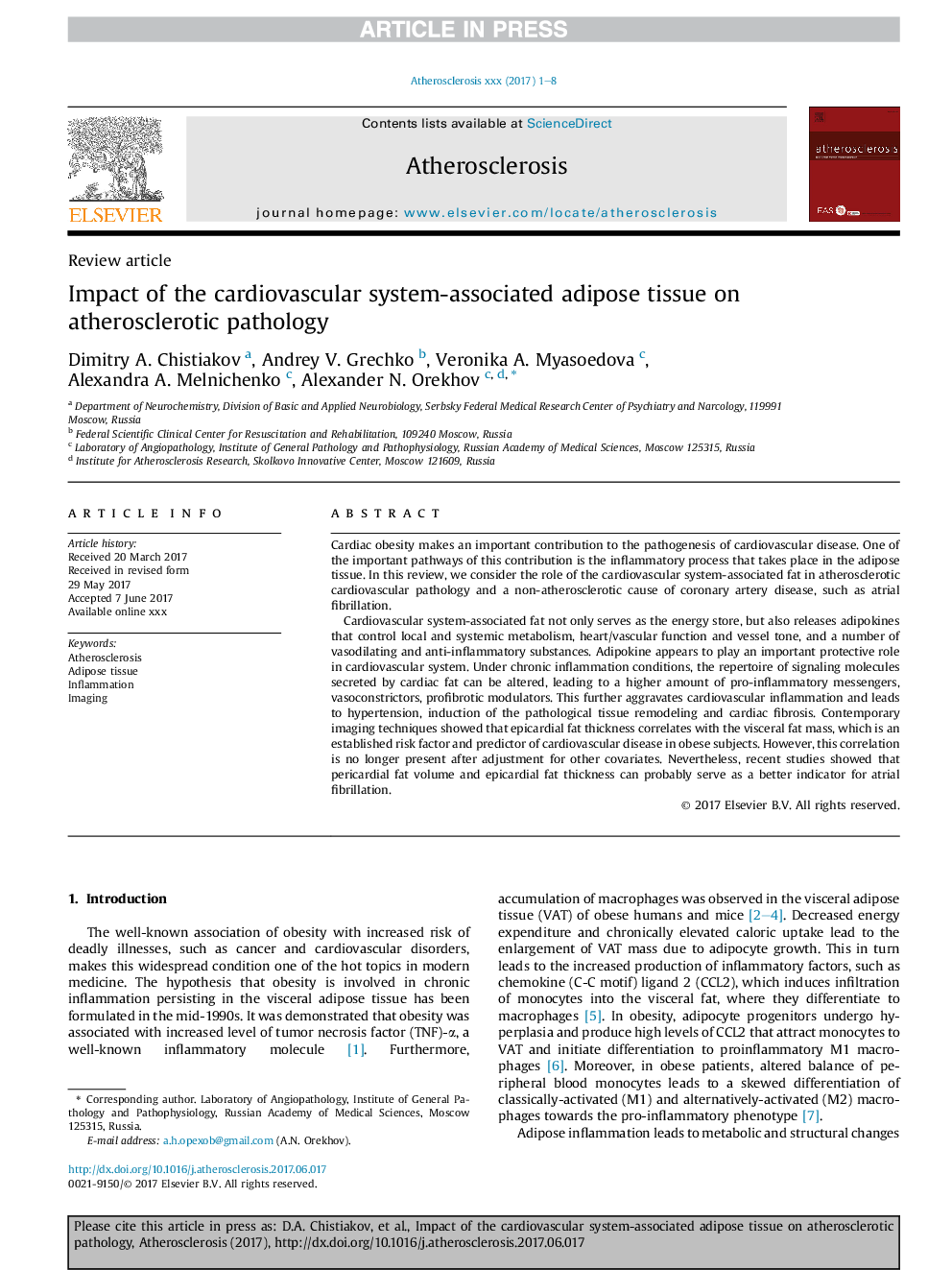| Article ID | Journal | Published Year | Pages | File Type |
|---|---|---|---|---|
| 5599265 | Atherosclerosis | 2017 | 8 Pages |
Abstract
Cardiovascular system-associated fat not only serves as the energy store, but also releases adipokines that control local and systemic metabolism, heart/vascular function and vessel tone, and a number of vasodilating and anti-inflammatory substances. Adipokine appears to play an important protective role in cardiovascular system. Under chronic inflammation conditions, the repertoire of signaling molecules secreted by cardiac fat can be altered, leading to a higher amount of pro-inflammatory messengers, vasoconstrictors, profibrotic modulators. This further aggravates cardiovascular inflammation and leads to hypertension, induction of the pathological tissue remodeling and cardiac fibrosis. Contemporary imaging techniques showed that epicardial fat thickness correlates with the visceral fat mass, which is an established risk factor and predictor of cardiovascular disease in obese subjects. However, this correlation is no longer present after adjustment for other covariates. Nevertheless, recent studies showed that pericardial fat volume and epicardial fat thickness can probably serve as a better indicator for atrial fibrillation.
Related Topics
Health Sciences
Medicine and Dentistry
Cardiology and Cardiovascular Medicine
Authors
Dimitry A. Chistiakov, Andrey V. Grechko, Veronika A. Myasoedova, Alexandra A. Melnichenko, Alexander N. Orekhov,
